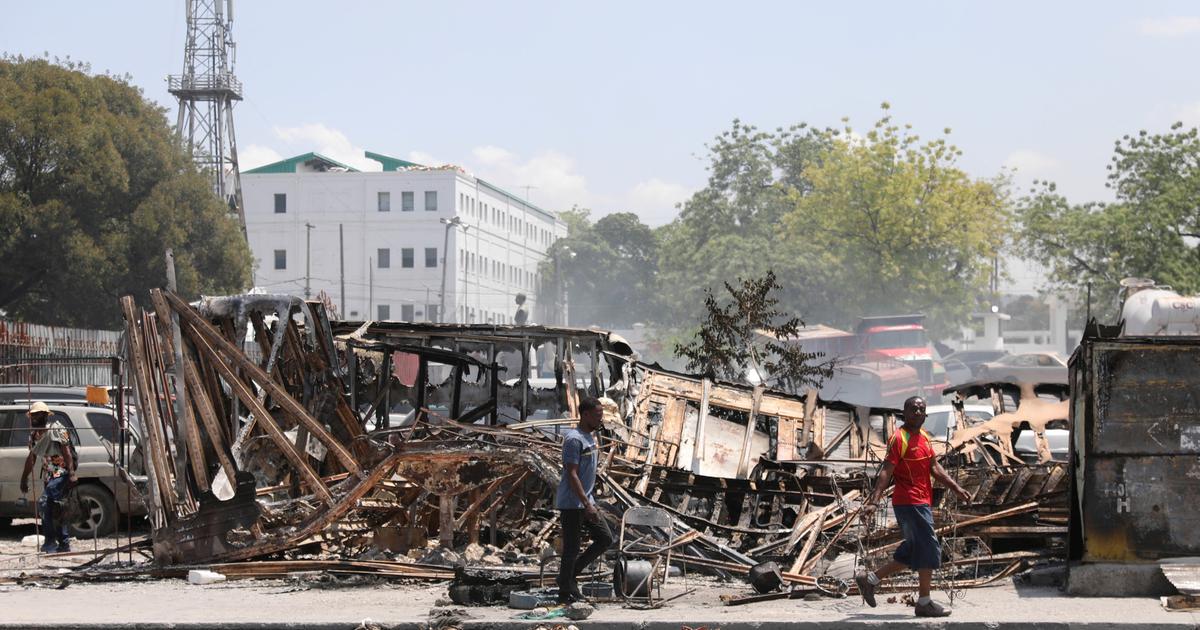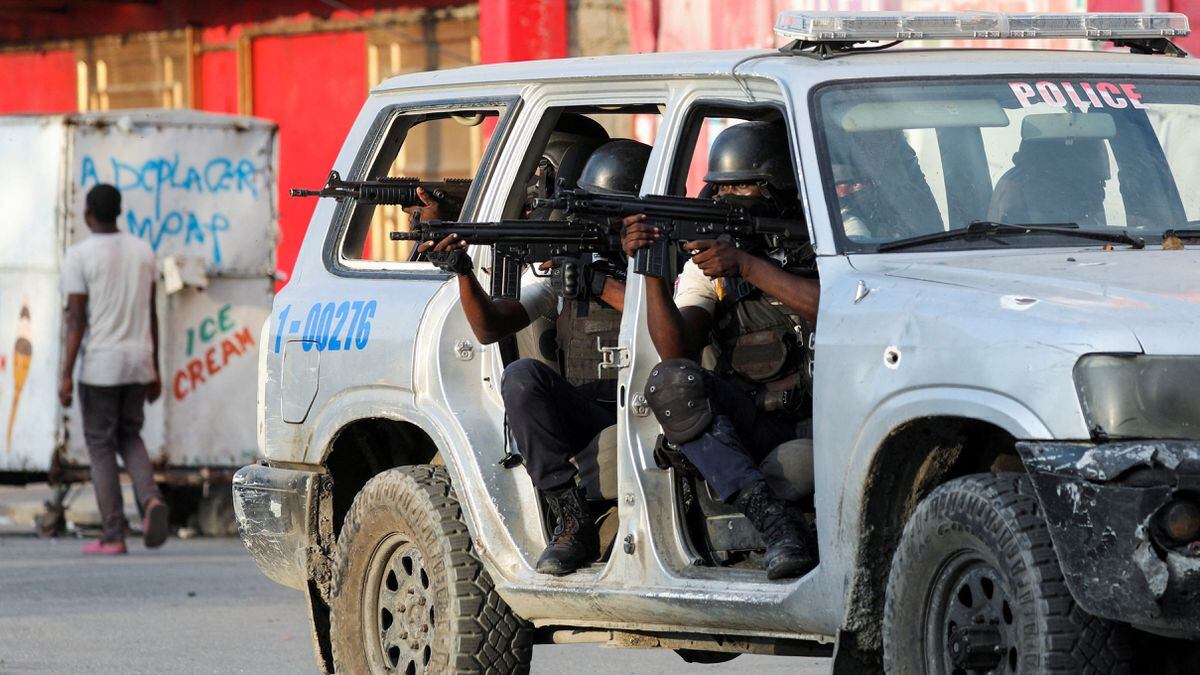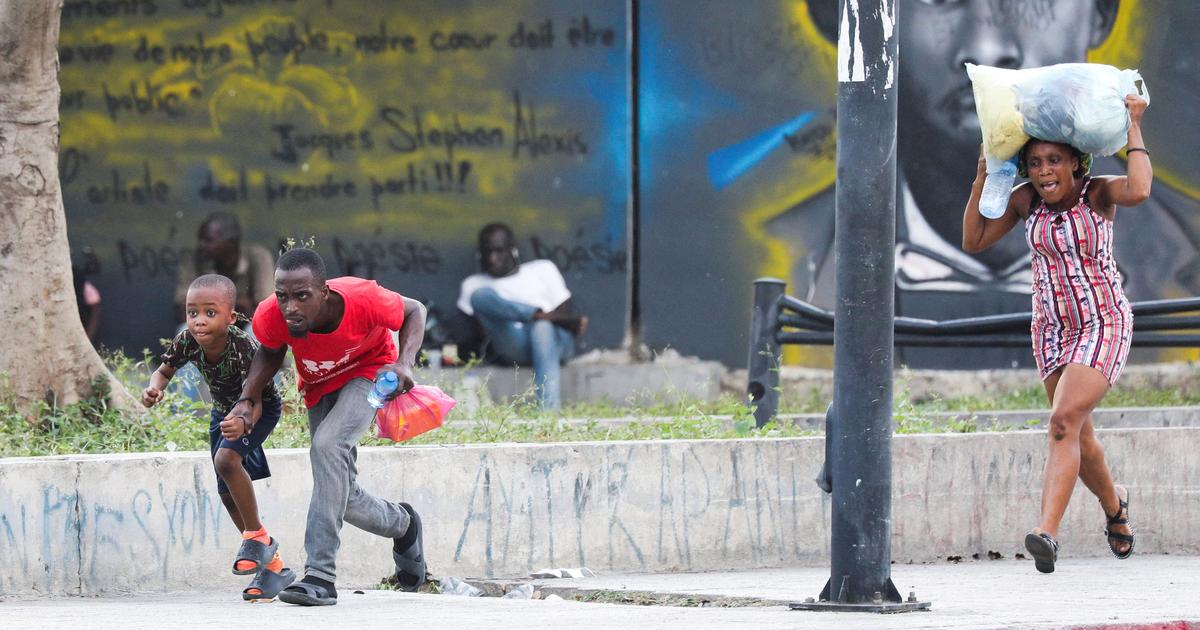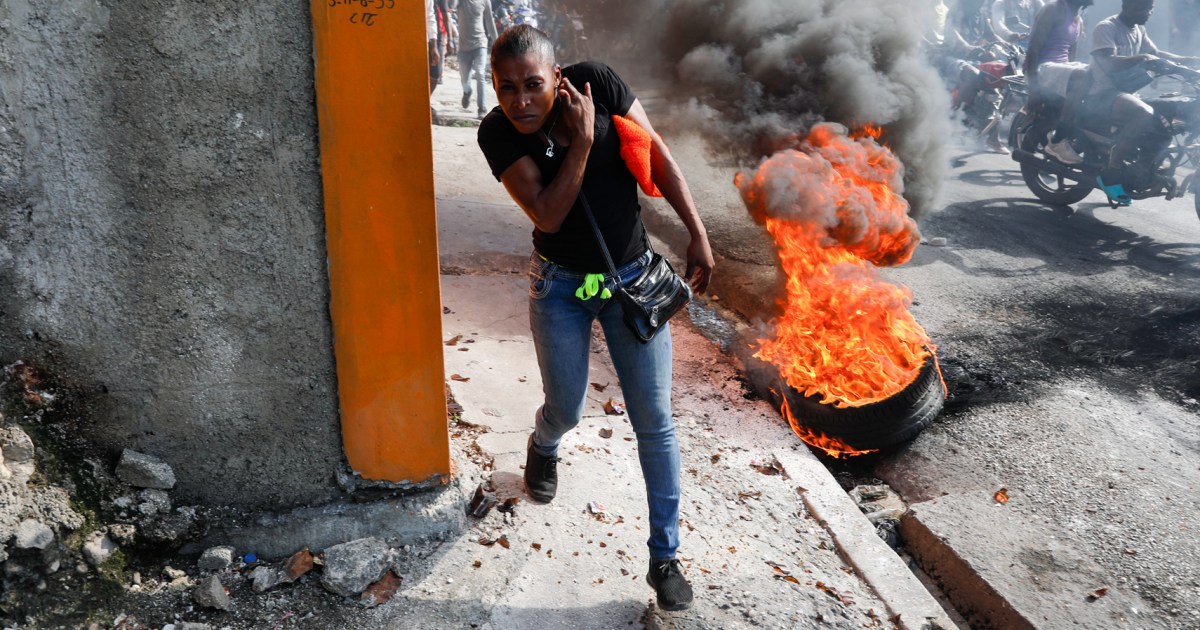Note to readers: EL PAÍS offers the Future Planet section for its daily and global information contribution on the 2030 Agenda. If you want to support our journalism,
subscribe here.
I have just returned from the areas hardest hit by the August 14 earthquake in southwestern Haiti.
I naturally found a bleak situation.
But I also found a group of rural women who, even having lost everything, have the desire, the need and the interest to transform their reality and their environment.
It is for them that I make this call.
More information
"We have nothing": the struggle to survive in the epicenter of the earthquake in Haiti
Haiti tries to wake up from the nightmare after the earthquake
Earthquakes and hurricanes in Haiti: from the political curse to social salvation
Since my first visit, more than 20 years ago, little has changed in this country where less than 1% of GDP is devoted to health or education, where families - even the poorest - have to pay to go to school, in which the prices of the supermarkets are unattainable for the vast majority.
The earthquakes of 2010 and 2021, the hurricanes and storms, the permanent political crises (of which we are living a new chapter) and a deteriorating citizen security situation, have only accentuated the profound inequities that the Haitian women.
The international community, which made a great effort to help after the 2010 earthquake, is in Haiti with what a foreign diplomat described to me as a complex and rapidly changing context characterized by three deep-rooted problems: an inefficient economic model, impunity and corruption.
The women I met told me about their pistachio and cassava crops, two highly sought after products in the developed world and with zero tariffs in Europe and other regions.
However, an inefficient and unsupportive model forces them to hand over their harvests in concession to large distributors, without knowing how much or when they will charge.
We are facing a situation that only contributes to a vicious cycle of reproduction of poverty and exclusion
If we add to that the failures in infrastructure, the difficulties in accessing international aid and the problems of public security, we are facing a situation that only contributes to a vicious cycle of reproduction of poverty and exclusion.
That is why Haiti continues to need us.
From UN Women we have strengthened our team in Haiti, and together with CARE International, the Government and the United Nations humanitarian agencies, we are preparing a rapid assessment of the most urgent needs to organize our work and guide the response towards differentiated care for women. men, girls and boys.
Our assessment revealed that the population affected by the earthquake urgently needs shelter, clean water, food, basic social services and protection.
18% of women and 12% of men are homeless;
53% of women and 56% of men sleep next to a damaged house.
This lack of housing and shelter is perceived by 83% of the people surveyed as a factor of insecurity and a greater risk of violence.
Before the earthquake, 46% of the population had unmet food needs, especially among children, adolescents and pregnant women.
Furthermore, the results suggest that approximately more than 12.5% of women are heads of household, and not being able to share these tasks further worsens their situation.
Before the earthquake, 46% of the population had unmet food needs, especially among children, adolescents and pregnant women
According to the report, 54% of women and 46% of men have already had difficulties accessing health services due to the health crisis in the area affected by the earthquake;
79% perceive that women participate in the response process, but 22% indicate that their presence in decision-making is limited.
The analysis is much broader and covers other areas, but only with the ones I list here we already have a huge task ahead.
The solutions seem logical, but implementing them in the conditions I described earlier means facing many challenges.
That is why I appeal to the solidarity and support of those who can contribute to our fundraising campaign.
I also urge that the governments of the main destination countries of the Haitian diaspora in Latin America, but also the United States and Canada, take concrete actions to support the Haitian population.
I also appeal to the solidarity and sensitivity of the private sector in Haiti, so that women, especially in rural areas, can have access to markets in better conditions, as well as to financial instruments that guarantee the sustainability of their income in the long term.
I also urge the Government and other instances of power in Haiti to approve measures and policies that incorporate women, and to ensure that they are at the center of decision-making and recovery and reconstruction efforts.
I said at the beginning that little has changed in this country in 20 years, but that is precisely why I believe that this is the time to redouble our efforts, to pour out all our solidarity, to work for a better future for all the women of Haiti, especially rural women.
That is why I urge you, I ask you, I beg you: do not abandon Haiti.
María Noel Vaeza
is UN Women's Regional Director for the Americas and the Caribbean.
FUTURE PLANET can follow on
,
and
, and subscribe
here
to our 'newsletter'
.


/cloudfront-eu-central-1.images.arcpublishing.com/prisa/37KSCZ5C5NHVMQT4Q2IIVFLWHA.jpg)


/cloudfront-eu-central-1.images.arcpublishing.com/prisa/KNNRGWIJGRARJOZSFGKXOO77DM.jpg)









